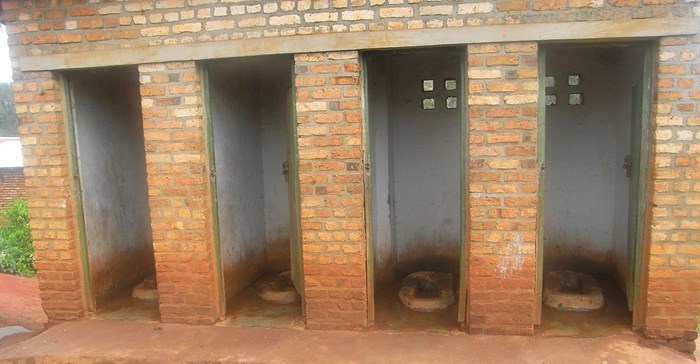
Recent Water Research Commission (WRC) research outcomes on the state of school sanitation found that failed sanitation is a widespread problem at South Africa’s rural schools and violates children’s rights to safety, health, and dignity, and those with special needs are inadequately supported.
Children’s right to education is compromised at schools with failed sanitation as demonstrated by the range of impacts seen on learning in the study School Sanitation Management Handbook (report TT 699/16): children miss class waiting for toilets or leave school seeking a place to relieve themselves; girls stay home during their menstrual cycles; illnesses are transferred in filthy toilets; degrading conditions and threatening or humiliating experiences in the toilets compromise children’s ability to concentrate and to thrive at school. In some cases, school toilets could be argued to be the most dangerous place on the school grounds.
While inadequate and/or inappropriate infrastructure was found to play a role in the failure of sanitation, the following management challenges contributed to failure even when infrastructure was relatively new:
Infrastructure that is not accompanied by an effective management programme can be expected to fail. The Department of Education leaves management of school toilets up to the schools, however many schools do not have the capacity to manage toilets effectively. Principals have no clear protocols, expectations, standards or criteria from the department to define their role in sanitation; as a result, the attitudes, awareness and practices of principals towards monitoring, inspecting, reporting, funding, cleaning and maintaining varies enormously and frequently is far from adequate.
While some principals never set foot in the toilets, others monitored them personally on a daily basis; however, neither measured their performance against any clearly defined criteria or responsibility defined by the department. Principals had vastly divergent ideas of what their role and the role of the department were in sanitation.
Most schools did not have a dedicated cleaner and learners were required to clean toilets without protective equipment. Some schools never cleaned the toilets themselves during cleaning sessions. Principals felt they did not have access to adequate resources to manage sanitation.
Principals reported immense frustration over the lack of responsiveness of the department to sanitation needs – including serious health and safety risks, however there is a serious lack of accountability in this regard. Further, they lacked will and vision for managing sanitation and lacked an understanding of and commitment to learners’ rights and professional ethics as applied to sanitation.
Current designs and technologies do not take into account user needs, dignity and safety. Pedestals that do not accommodate children frames; fear of snakes, insects and monsters in the toilets were mentioned; the discomfort described by learners was exacerbated by toilets often being far from the main school buildings and poorly monitored by staff. The impact of the conditions in toilets on learners’ wellbeing in the learning environment should be acknowledged and addressed in terms of infrastructure design, cleaning and monitoring and support provided to learners.
In response, WRC has and is developing several sanitation technology alternatives for schools and have launched tools and guidelines for the design and management of school sanitation grounded in best practice and informed by the perspectives of principals, learners and cleaners.
In addition, a management handbook, which includes a training module for a health and safety officer, was developed. A pilot project is underway in demonstrating designed guidelines and the application of the management handbook in schools in order to refine it and improve it based on the participants’ experiences. This resource, which is first of its kind, is available to all departments officials, principals and learners to tackle the problems associated with school sanitation.
It is important to not forget that schools exist only to meet the needs of children: there is no other reason. If we do not carefully articulate and hold to the values that should drive education, these inputs from our environment may result in a school culture where teachers ensure their needs are met but neglect the needs of learners – especially in hidden or "invisible" zones such as the toilets.
Educators assume responsibility on behalf of each child’s parents during the school day to protect, nurture and develop learners physically, intellectually and emotionally.